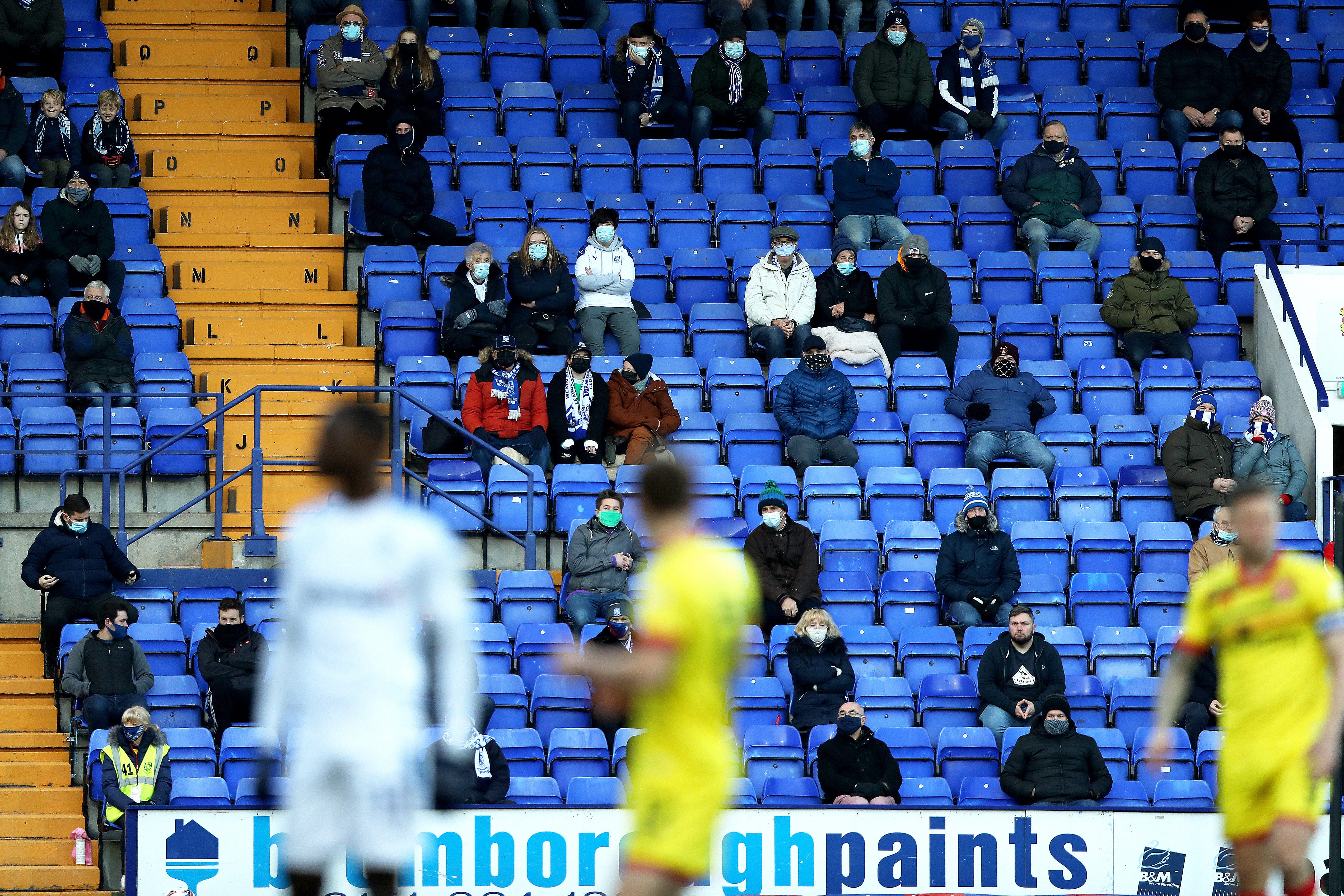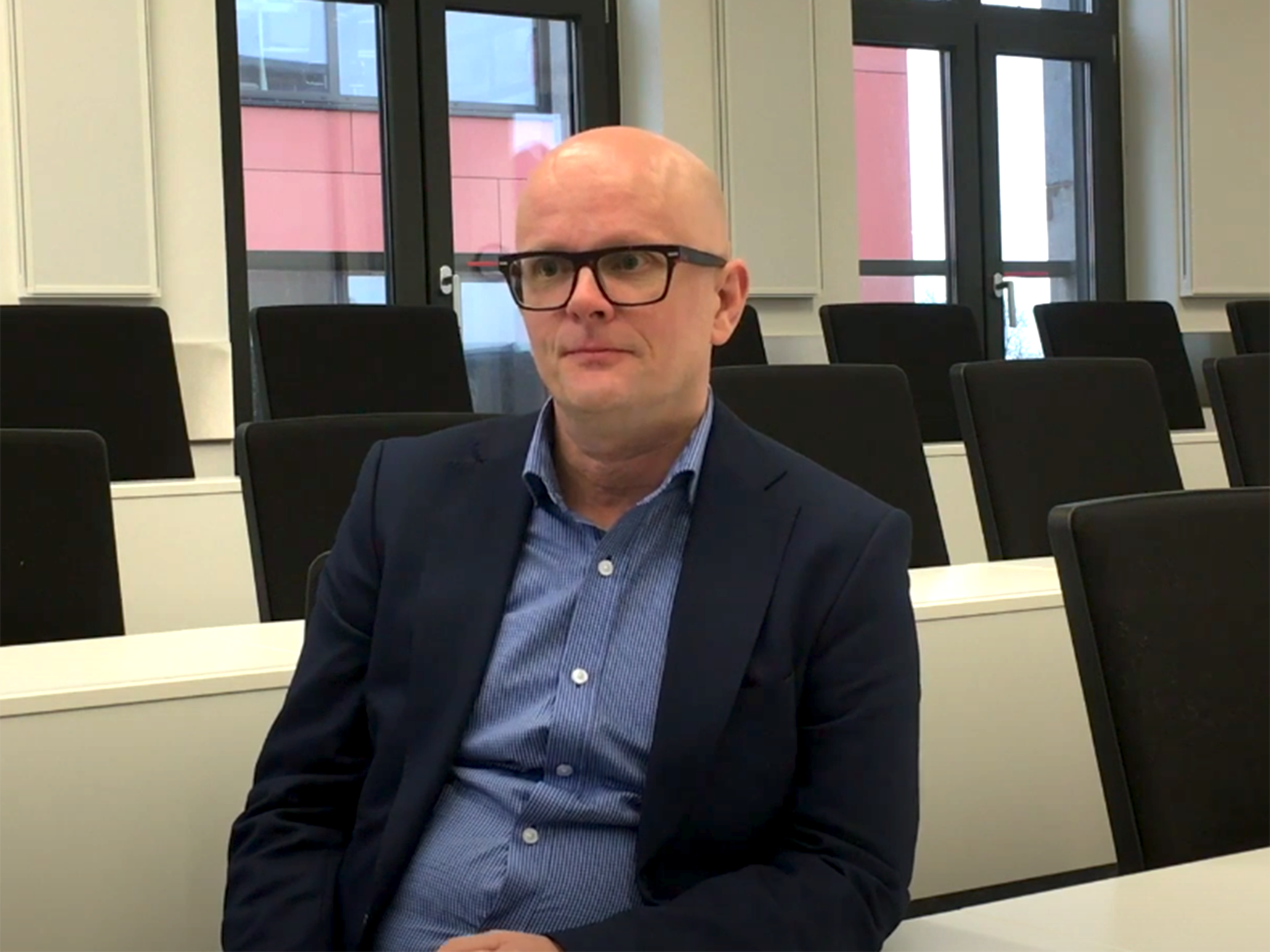Football needs a cultural revolution to survive a post-pandemic world
The pandemic forced the beautiful game to take a long hard look in the mirror, and it didn’t like what it saw. The entire system is broken and needs to be reset, reports Melissa Reddy


In mid-March, when everything as we knew it was suddenly reshaped by the coronavirus pandemic, a group of financial experts working in football hoped that the game would use the enforced break in play to finally pay attention to its plethora of ills, to sanitise itself. “This is the opportunity to stop sleepwalking into the future,” Professor Simon Chadwick, the global director of Eurasian Sport, told The Independent. “The current woes can bring about a cultural revolution. Football needs it.”
While there could be no certainty over the effects of Covid on the industry or an inclination of how long the hiatus would last, the game was finally forced to have a hard look at itself.
The entertainment and the income stopped with the spotlight switching to the mechanisms behind the show. It became very clear, very quickly that English football was far from sustainable.
The pandemic wasn’t the cause of this, merely the curtain-parter to give us a glimpse of what lurks beneath – gigantic financial inequalities, absence of accountability, no long-term picture – before then acting as an accelerant, especially with the removal of matchday revenue.
“The coronavirus crisis has shone a light on how drastically football lives a hand-to-mouth existence,” say Dr Rob Wilson, author of Managing Sport Finance.
“I’m not for one second saying they should have planned for a global pandemic, but they didn’t plan for… anything. Over the last 25 to 30 years, we’ve seen an erosion of basic economic principles, with many teams going for the winner-takes-all option. Everything has been driven by very selfish behaviour and has been very unscrupulous at times, which is a dangerous narrative. The system is fairly broken and needs a reset.”
Only four teams – Queens Park Rangers, West Bromwich Albion, Hull and Rotherham – had spent below Uefa’s recommended “healthy” wage-to-turnover limit of 70 per cent.
To reach the holy grail of the Premier League, clubs were bartering against its existence and when the crisis hit, the English pyramid was in threat. The divisions below the top-flight were in desperate need for a bailout, but more especially a drastic change in operations.
For months, no deal could be reached on a rescue package from Premier League to the English Football League. An agreement eventually materialised at the start of December, via £50m aid for League One and Two and a £200m loan facility for Championship teams.
But the lengthy period in-between was one of mounting frustration for the clubs who feared disappearing from the landscape. Government had given the arts industry a £1.57bn support shot in July, but were crystalline that they would not be lending a helping hand to the national game. In the absence of strong governance from those in charge of the country and those in charge of the game, Project Big Picture emerged, driven by Liverpool and Manchester United.
The controversial proposal, which would have seen the consolidation of power to the Premier League's Big Six along with Everton, Southampton and West Ham through special voting rights, was killed in its infancy through harmful leaks.
It did, however, have “overwhelming support” from the lower divisions as it addressed many of the key issues plaguing those levels of the game. Project Big Picture had advocated that the Premier League would share a net 25 per cent of its upcoming broadcast deals with the EFL as well as offer an immediate £250m bailout to help the pyramid survive.
It would also cover funding for stadium infrastructure and grassroots, the creation of a fan charter, an easing of the packed domestic schedule and a £100m helping hand to the FA. It promised an end to the “evil” of parachute payments, which fuels inequality and a reduction of the top-flight to just 18 teams, which would enhance competitive balance. Salary caps would curtail irresponsible free spending.
Project Big Picture was viewed as essential and the most pivotal plan in nearly three decades to help repair a broken system. There is a widespread feeling within the game that various aspects of the proposal will ultimately come to pass because greater sustainability is imperative.
Professor Chadwick has been “advocating for a football parliament for around 15 years, where relevant stakeholders debate in public over the key areas of concern and how it can be tackled in future”.
He had hoped the pandemic would push the importance of such a mechanism along, but it hasn’t been forthcoming. “Too often the management and leadership within clubs is insufficiently developed. In some cases it is immature,” Chadwick told The Independent. “There’s a thinking of what happens on the field is most important and so off the field, there’s a lot of me tooism.

“Instead of clubs individually assessing a situation and thinking ‘this is what we believe we need to do’, many will think ‘oh they’ve done that, so we need to do that’.
“You get a cascade effect of ‘me too – I’m doing it too.’ It results in generic responses to crisis situations. I’ve heard this being called a ‘reset moment’ for the game. Reset to what? Who is going to do the resetting? The government, the associations, clubs on their own?
“It need advocates, stakeholders from across the game – officials, fans, media, execs – to agree a path forward that becomes policy, which is supported by government. Whether it be ridding gambling sponsorships or making sure the game is really serious about corporate social responsibility.”
We've lost three generations of players who have been denied opportunities, we can't lose a fourth
The lack of sustainability is one of many fundamental issues that needs to be remedied in football’s future. Increasing representation off the pitch to make the game more representative of the communities it serves is another.
The FA launched its Leadership Diversity Code in October to tackle racial inequality in technical areas and the boardroom. At the time, there were only five out of 92 managers or head coaches who were from Bame backgrounds. The picture was no prettier in executive positions across the sport.
Measures had to be taken and with more than 40 clubs have signed up to the voluntary code, it is hoped that there will be greater commitment to providing equal opportunities and transparency in the hiring process.
It stipulates that: 15 per cent of new executive appointments will be from a Bame background, with 30 per cent female; 50 per cent of new coaching appointments at women's football clubs will be female, with 15 per cent Bame.
Shortlists for interview will have at least one male and one female Bame candidate, provided applicants meeting the job specifications apply.
“We are trying to modernise football so it stops relying on its 'little black book' and group of networks and actually gives equal opportunities to those who are qualified,” explained Paul Elliott, head of the FA's inclusion advisory board.
”This isn't about tokenism, this is about equal opportunities. To be the same as everyone else. What really inspired me to create the code was a comment from Raheem Sterling, when he said he looks up to the directors and senior leadership and doesn't see people like him. We've lost three generations of players who have been denied opportunities, we can't lose a fourth.”
Incidentally, an episode that underscored exactly why the upper echelons of football need a variety of voices and people from different backgrounds came from the FA itself just days after the launch of the code. Greg Clarke resigned as the organisation’s chairman after using what he admitted was ”unacceptable“ language. The ease in which he delivered several offensive, idiotic statements spoke to the reality of unrepresentative institutions.
Clarke used the term ”coloured footballers”, referring to gay players making a “life choice” and revealed a coach told him that young female players did not like having the ball hit hard at them. He also said there were “a lot more South Asians than there are Afro-Caribbeans“ in the FA's IT department because ”they have different career interests”.
Not only did Clarke undermine the body’s labour in drafting the code – there was a five-month consultation period, taking in the recommendations of players like Jordan Henderson, Tyrone Mings and Lucy Bronze as well as journalists and other stakeholders – he flagged just how out of touch the hierarchy of football is in the country.
The game has a distance to go in remedying these historic problems and with the way it deals with instances of discrimination. In the 2019-20 season, there was a 53 per cent increase in reported racial abuse in professional football. The problem is more pronounced on social media, where clubs, players, leagues and governing bodies need to get tougher with the platforms.
Another major concern – a matter of life and death – is the outdated and dangerously lax protocols for head trauma. Wolves forward Raul Jimenez suffered a fractured skull in November after aerially colliding with David Luiz at an Arsenal corner. The defender passed the current concussion protocol, his head was bandaged and he returned to action. Blood seeped through his dressings and he was unsettled heading the ball. Luiz had to be removed at half-time, but he shouldn’t have even been allowed to continue.
Dr Willie Stewart, the neuropathologist who proved the game’s link with dementia, believes football is still “in the last century” when it comes to dealing with head trauma.
While other sporting codes have a temporary concussion sub so a proper examination can happen, football is nowhere close to introducing such a mechanism
There is not enough time to assess the player under the current guidelines, which allows for three minutes. While other sporting codes have a temporary concussion sub so a proper examination can happen – independent of club medical staff so player welfare rather than the result is prioritised – football is nowhere close to introducing such a mechanism.
Stewart is frustrated at the non-action as his research, spanning two decades, shows that there is a 3.5 times higher risk of death and brain disease, a doubling of risk of Parkinson’s, a fourfold increase in motor neurone disease and a fivefold increase in Alzheimer's disease among former pro players.
Ryan Mason, who was forced to retire aged 26 in February 2018 after suffering the same injury as Jimenez, “feels lucky to be alive”. He has been campaigning for football to implement more advanced protocols for head injuries as well as appreciate the dangers of the type of aerial challenge itself.
“I would like to say a lot has changed since then on the football pitch, but it actually hasn't which is probably why I'm so passionate talking about it now, because obviously Raul has suffered a similar incident,” Mason explained.
“It makes me angry, makes me upset and so many different emotions because I've spoken to quite a few people over the last couple of years.
“What's football's excuse to ignore it? Because I can't really find any reasons to just ignore it and carry on with this protocol that we have in place, which clearly isn't right.
“Why aren't we willing to change? Why isn't football willing to adapt? The brain is very vulnerable and we need to do what we can to protect our players now, not only short term, but long term as well.”
This year should have also made it clear to the game that there is another group that need protection: supporters. Football without fans has been a soulless experience; a competitive training ground match played in empty stadia pumped with fake crowd noise to fulfil broadcasting contracts and offer a tiny bit of normalcy to lives.
Terraces in Tier 2 areas being filled with 2000 voices in the final weeks of 2020 was not only welcome, it was necessary. Emotion was back along with the feeling that football mattered well beyond the result; a sense of community and belonging returned. This should be remembered when the subject of ticket prices is flagged or whenever supporters are fleeced or unfairly vilified.
Their thoughts on VAR should be respected too. The spectacle is being dimmed by the implementation of the technology which promised minimum intervention for maximum benefit but has proved to be the opposite. The Laws of the Game, particularly around handball, need to be reworked.
On a more personal matter to supporters, The Independent has covered the prejudiced policing of matches in the UK in depth, where fans are seen as a public disorder threat rather than ordinary citizens attending an event. They would be treated differently if they were attending a music concert, a rugby game or any other mass gathering.
This has to be forced to change. Football can no longer continue with the status quo, not when the pandemic put it under the microscope and showed just how fragile it is. Not when we all know what lurks beneath the glitz and the goals.




Join our commenting forum
Join thought-provoking conversations, follow other Independent readers and see their replies
0Comments